Bachelor of Science in Physics New England campus experience
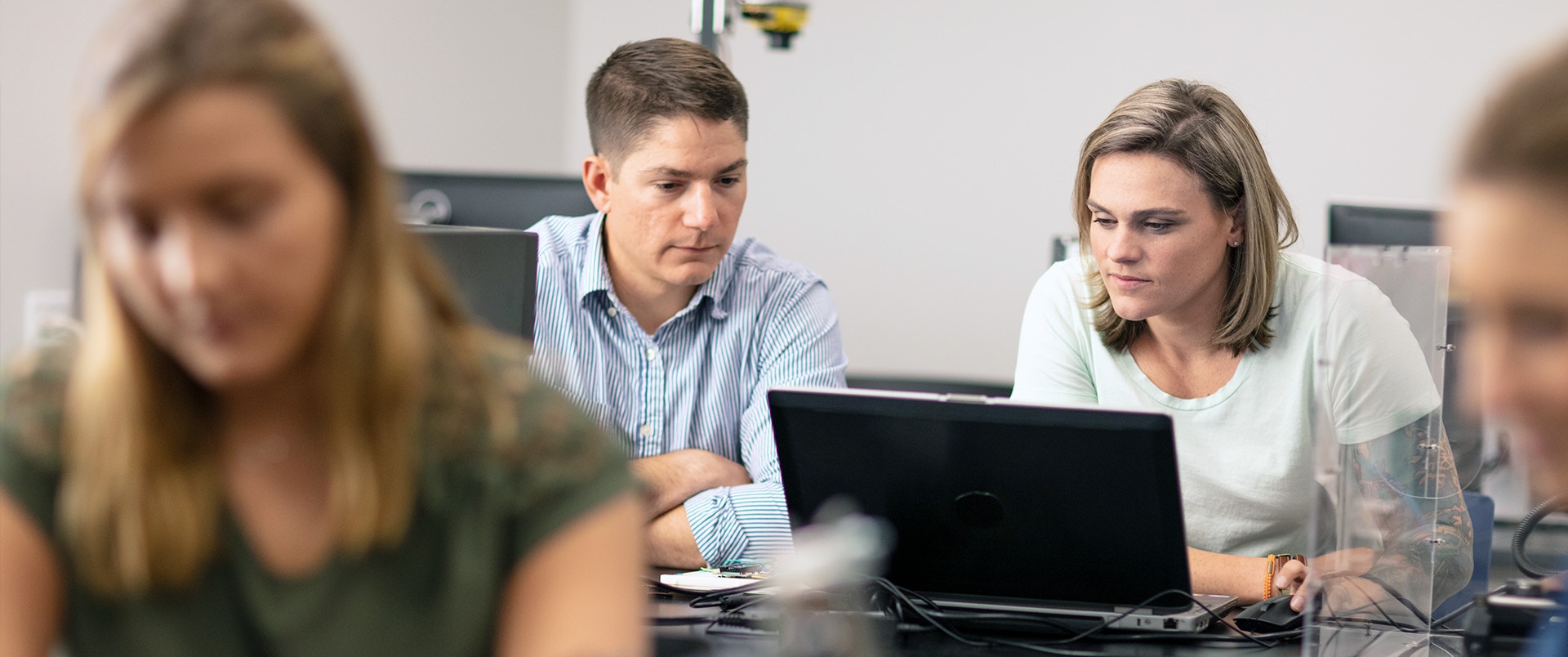
Program Overview Why get a physics degree on campus?
Analyze complex systems and physical phenomena in real-world scenarios in the Bachelor of Science (BS) in Physics program at Southern New Hampshire University. Learn about electromagnetism, explore classical and quantum mechanics and verify theoretical results in the lab – all while cultivating a personal sense of curiosity and passion for science.
Skills you'll learn:
- Mathematical tools and principles
- Analysis of physical phenomena
- Scientific method
- Inquiry-driven approaches
- Professional communication skills
- Passion and curiosity for science
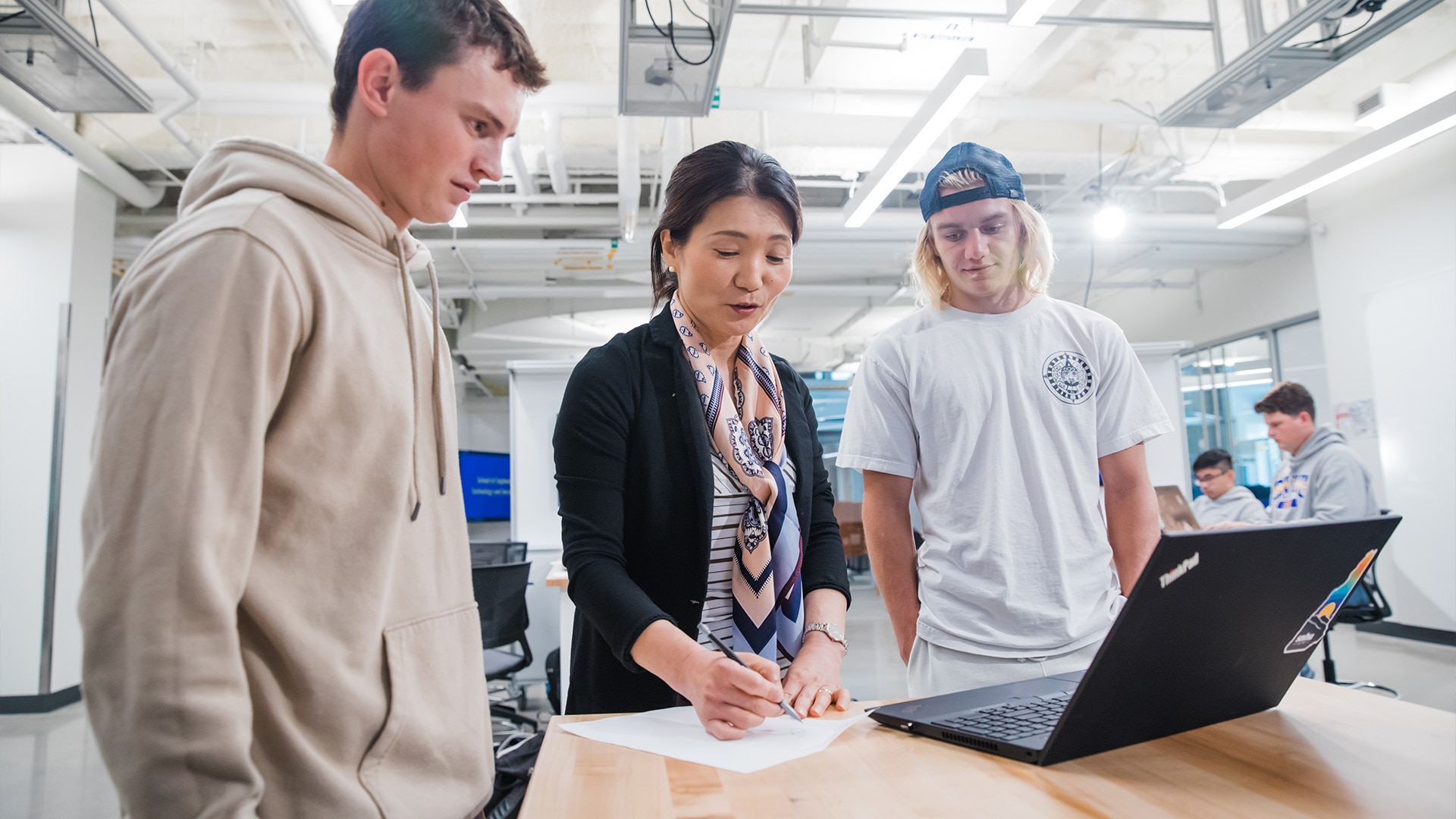
Courses & Curriculum Explore the universe with on-campus physics courses
As a physics major, you won't just learn the fundamentals from books – you'll also put physics theory to the test in hands-on research and projects in our state-of-the-art labs. And with coursework split between our School of Arts, Sciences and Education (SASE) and our School of Engineering, Technology and Aeronautics (SETA), you can study a wide range of topics, including classical mechanics, thermodynamics, programming, modeling and simulations, biophysics, atoms, quantum mechanics, space and beyond.
G. Richard Ludlow III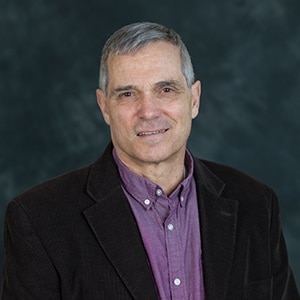
Position
Assistant Professor, Coordinator - Physics
Joined SNHU
2016
Education
- PhD in Physics from the University of New Hampshire
- BA in Philosophy with a minor in Physics from the University of New Hampshire
Before joining Southern New Hampshire University, Dr. Ludlow spent ten years with Daniel Webster College teaching courses in physics, astronomy, calculus, and other subjects. He has been published in a variety of papers and journals, primarily on physics-related topics such as the stability and acceleration of auroral electron beams, drift wave instabilities in a high beta multispecies plasma, and the interaction of H+ and O+ beams.
He has extensive research experience, including time spent as a research assistant at both the University of Denver and UNH. He is currently a member of the American Geophysical Union and has served as a referee for scientific papers submitted to the Journal of Geophysical Research and for scientific proposals for NASA and NSF.
Campus major courses
You’ll take major courses that provide you with a solid foundation in your area of study – in some cases featuring experiential or project-based learning opportunities, labs, simulations and internships. These courses will allow you to learn a wide variety of topics and help prepare you for a role in your desired field.
Courses may include:
Visit the course catalog to view the full BS in Physics curriculum.
Campus general education courses
All undergraduate students are required to take general education courses, which are part of SNHU's newly redesigned program, The Commons. The goal of The Commons' curriculum is to empower you with some of the most in-demand skills, so you can succeed not only in your academic career, but in your personal and professional life too.
Courses may include:
Can’t wait? You don’t have to!
Apply now if you’re ready, and have your decision within 30 days. Or, schedule a visit and come see us in person!
Have questions? Visit our Contact Us page.
Career Outlook What can I do with a physics degree?
Whether you want to steer your career into math, computer hardware and software, education or research and development, a bachelor's in physics is a versatile degree. From data science to technical writing, you'll find roles where your skills can shine.
After graduating, you could apply for technician or research assistant jobs in related fields like engineering and computer science. And according to the BLS, a bachelor's degree could be all you need for an entry-level physics position with the federal government, including organizations like NASA and the U.S. Department of Defense.1 But if your goal is to become a physicist or astronomer in research or academics, you'll likely want to continue your studies and pursue a doctoral or professional degree.
Career paths include:
- Data analyst
- Technical writer
- Research analyst
- Programmer
- Business analyst
Estimated number of physical scientists (all other) employed as of May 2023, according to the U.S. Bureau of Labor Statistics.1
Median annual wage nationally for physical scientists (all other) as of May 2023, according to the BLS.1 Statistic not based on wage data for SNHU graduates.
Understanding the numbers
When reviewing job growth and salary information, it’s important to remember that actual numbers can vary due to many different factors—like years of experience in the role, industry of employment, geographic location, worker skill and economic conditions. Cited projections are based on Bureau of Labor Statistics data, not on SNHU graduate outcomes, and do not guarantee actual salary or job growth.
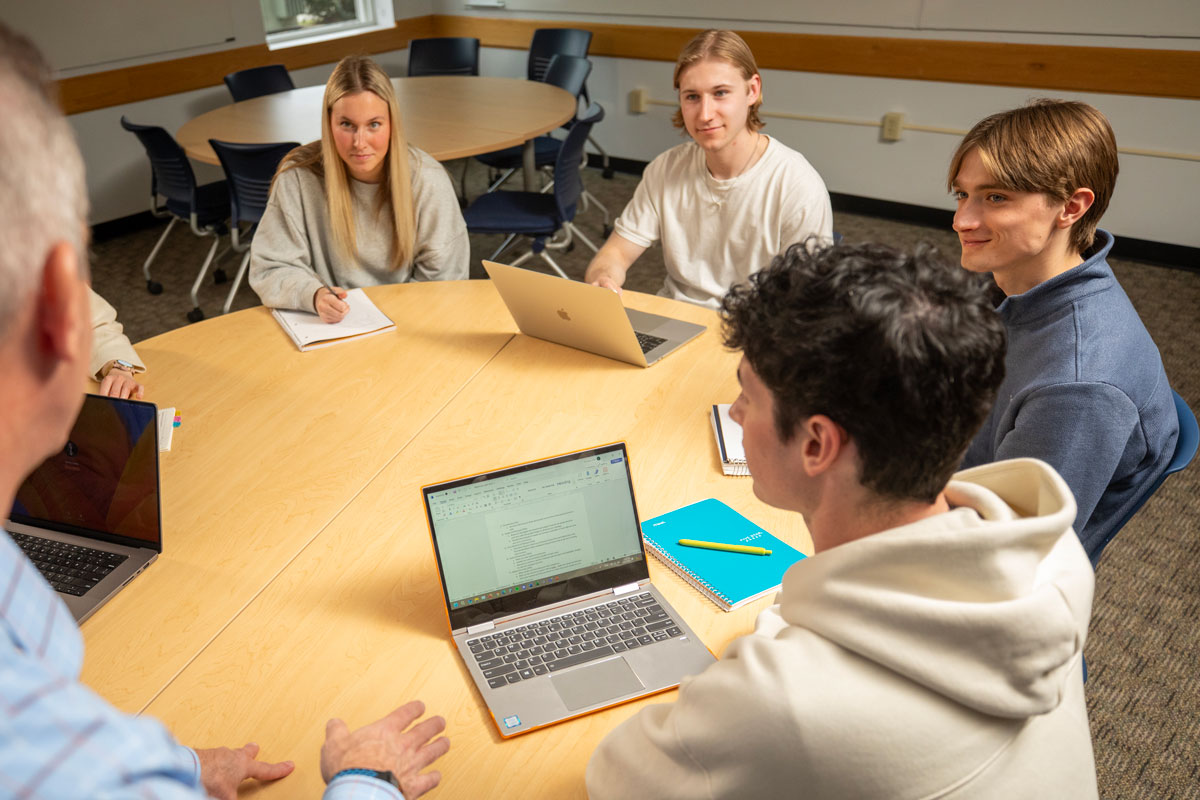
Campus Student Experience So, what’s it like taking classes on campus?
Whether you’re examining magnetic fields or using data from NASA’s Kepler mission to look for exoplanets, the physics program at SNHU encourages project-based learning in state-of-the-art laboratories from professors with field experience. From campus to the cosmos, you'll continually ask questions, apply inquiry-driven approaches and challenge assumptions. And through theory-based learning and hands-on work, you'll gain in-demand knowledge, skills and real-world experience employers are looking for.
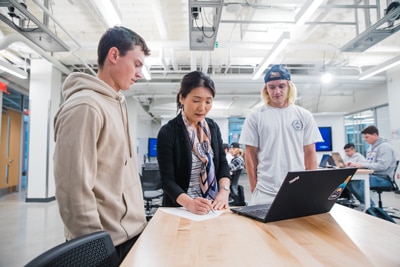
Student support
At SNHU, you don’t have to do this college thing alone. You’ll have help from your advisor, access to tutoring and office hours, career coaching, and mental health services so you can do your best and feel your best.
Additionally, our Office of Diversity and Campus Accessibility Center make campus a safe place for everyone. Visit our Student Services page to learn more about our support offerings.
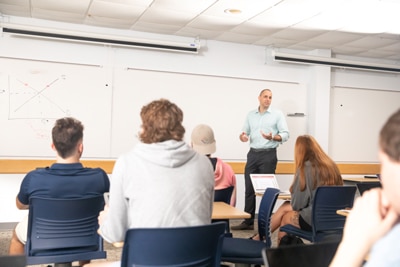
Small class sizes
With an average class size of 15-25 (depending on your major) you’ll learn in an environment where professors with real world experience know you by name.
Here, you’re not getting lost in giant lecture halls, but instead, actively participating in thoughtful dialogue where you’re always encouraged to collaborate with your peers and ask questions when they arise.
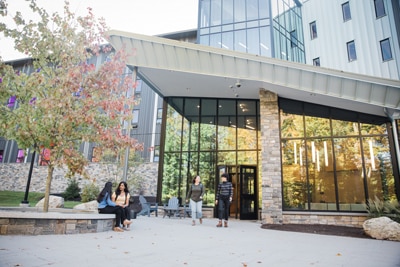
State-of-the-art facilities
Our 300-acre campus has everything you need. From technology-advanced classroom settings to your dorms complete with fitness centers and hangout spots, our goal is to give you the best college experience possible.
Whether you’re learning in a classroom, in a lab, on the field, or in your field, you’ll have what you need to be successful from the moment you wake up to the moment you close your textbooks.
School of Engineering, Technology and Aeronautics Learn about the School of Engineering, Technology and Aeronautics
In the School of Engineering Technology and Aeronautics, you'll put theory into practice daily. From circuit projects to flight test classes, you'll collaborate with peers, faculty and the community to take on real-world challenges. With a drone-flying arena, unmanned aerial vehicle prep space, wood shop, robotics lab and more, you'll have all the tools at hand to bring your ideas off the page.
How SNHU makes college affordable
At Southern New Hampshire University, we're on a mission to make high-quality education more accessible with more affordable tuition. With 70+ career-focused majors, state-of-the-art facilities, D2 sports and over 70 student clubs and organizations, you can get the campus experience you've always dreamed of at a more affordable price.
Fill out the FAFSA to see if you’re eligible for grants or work-study. (You could also be offered loans, though you’ll have to pay those back later.)
Transfer up to 90 credits toward your bachelor's degree program at SNHU. If you’ve taken one course or many, we’ll evaluate them for you.
Getting free money for college – from SNHU or an outside organization – could help you save hundreds or even thousands of dollars.
Our collaborative partnerships with high schools enhance academic opportunities and college accessibility for some high school students.
Hear from us
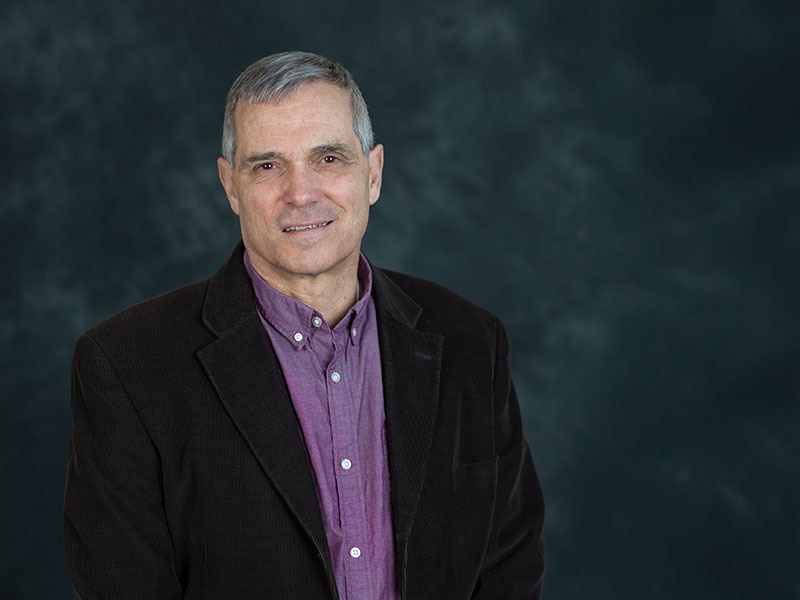
Leveraging the shared core curriculum with engineering programs, the physics program provides students with a robust foundation in mathematics, physics and related disciplines.
G. Richard Ludlow III, Assistant Professor, Coordinator - Physics
Accreditations
SNHU is accredited by the regional accreditor the New England Commission of Higher Education (NECHE). The university also carries specialized accreditations for some programs.

1Bureau of Labor Statistics, U.S. Department of Labor, Occupational Outlook Handbook, on the internet, at:
- https://www.bls.gov/oes/2023/may/oes192099.htm (viewed Oct. 15, 2024)
- https://www.bls.gov/ooh/life-physical-and-social-science/physicists-and-astronomers.htm (viewed Oct. 15, 2024)
Cited projections may not reflect local and/or short-term economic or job conditions and do not guarantee actual job growth.
Your dream school is waiting
Apply now or schedule a visit today.


